Sustainability is becoming a major focus in healthcare and medical technology. As the world moves toward eco-friendly solutions, prosthetic technology is also evolving. Traditional prosthetics are made using plastics, metals, and synthetic rubbers, which are difficult to recycle and contribute to waste. Now, researchers and manufacturers are working toward biodegradable prosthetic materials, which offer the same durability and comfort while being environmentally responsible.
At Robobionics, we are committed to developing high-performance, sustainable prosthetics that not only enhance mobility but also reduce environmental impact. In this article, we explore how biodegradable prosthetic materials are shaping the future of sustainability, making prosthetics more eco-friendly, cost-effective, and accessible.
1. What Are Biodegradable Prosthetic Materials?
Biodegradable prosthetic materials are eco-friendly alternatives to traditional materials used in artificial limbs. These materials are designed to break down naturally over time, reducing medical waste and pollution.
Unlike conventional plastics and metals, biodegradable polymers, plant-based resins, and bio-composites decompose without harming the environment. Some materials even contain natural fibers, such as bamboo or seaweed-based polymers, which degrade safely while maintaining high strength and flexibility.
By 2030, biodegradable prosthetics will become widely available, ensuring that individuals with limb loss can access high-quality, sustainable solutions that do not contribute to environmental waste.
2. The Environmental Benefits of Biodegradable Prosthetics
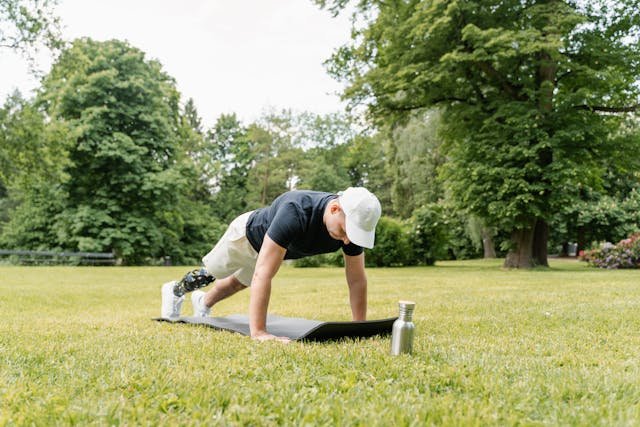
The prosthetics industry has traditionally relied on non-renewable materials that contribute to plastic pollution and landfill waste. The introduction of biodegradable prosthetic materials offers several key environmental benefits.
First, biodegradable prosthetics reduce dependency on petroleum-based plastics, lowering carbon emissions from manufacturing. Many eco-friendly prosthetic materials can be produced using sustainable sources, such as corn-based bioplastics or algae-derived polymers.
Second, biodegradable materials break down into harmless natural compounds, reducing the need for specialized recycling centers. Traditional prosthetics, when discarded, often sit in landfills for decades, but biodegradable materials ensure that prosthetics do not contribute to long-term environmental damage.
Finally, the use of eco-friendly materials encourages responsible disposal practices. As governments push for greener healthcare options, biodegradable prosthetics will help align medical technology with sustainability goals, making the industry more responsible and future-focused.
3. The Science Behind Biodegradable Prosthetic Materials
The development of biodegradable prosthetics is made possible through advanced material science. Researchers are creating strong, flexible, and durable materials that offer the same functionality as traditional prosthetic components while being eco-friendly.
One key innovation is biodegradable polymers, such as polylactic acid (PLA) and polycaprolactone (PCL), which are derived from corn starch and other plant-based materials. These materials naturally decompose under specific environmental conditions, ensuring that worn-out prosthetics do not contribute to waste.
Another breakthrough is natural fiber-reinforced biocomposites, where materials like bamboo fiber, flax, or hemp are combined with biodegradable resins to create lightweight yet strong prosthetic components. These materials offer superior strength and flexibility while being non-toxic and renewable.
By 2030, biodegradable prosthetic materials will rival traditional materials in durability, comfort, and cost-effectiveness, making them a standard choice for sustainable healthcare solutions.
4. The Role of 3D Printing in Sustainable Prosthetic Manufacturing
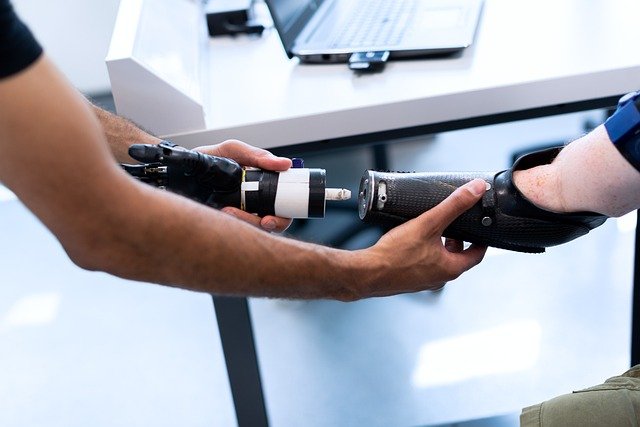
3D printing technology is playing a major role in the development of biodegradable prosthetics, making production more efficient, affordable, and customizable.
Traditional prosthetic manufacturing requires large amounts of raw materials, leading to waste from excess production. 3D printing allows for precise material usage, ensuring that only the necessary amount of biodegradable material is used, reducing waste and production costs.
Additionally, 3D-printed biodegradable prosthetics can be custom-designed for each user, ensuring a perfect fit without requiring excessive modifications. This reduces the need for replacements, extending the lifespan of prosthetic limbs and minimizing waste.
By 2030, 3D printing will revolutionize the prosthetics industry, allowing for on-demand, biodegradable prosthetic production, making sustainable solutions more accessible to people worldwide.
5. Biodegradable Prosthetics and Their Impact on Developing Countries
One of the biggest challenges in prosthetic accessibility is the high cost of materials and production. Many people in developing countries cannot afford high-quality prosthetics, but biodegradable materials offer a low-cost, sustainable alternative.
Because biodegradable materials can be locally sourced and manufactured using 3D printing, prosthetic costs can be significantly reduced. This means that more people, especially in underserved regions, will have access to affordable, custom-fit prosthetic limbs.
Additionally, biodegradable prosthetics are lighter and more comfortable, making them ideal for children and individuals who require frequent replacements due to growth or wear and tear. With sustainable materials, the cost of replacing prosthetics will be lower, ensuring that no one is left without mobility due to financial constraints.
By 2030, biodegradable prosthetics will play a key role in global healthcare equity, providing affordable and accessible solutions for people in developing nations.
6. The Future of Biodegradable Prosthetic Materials: What’s Next?
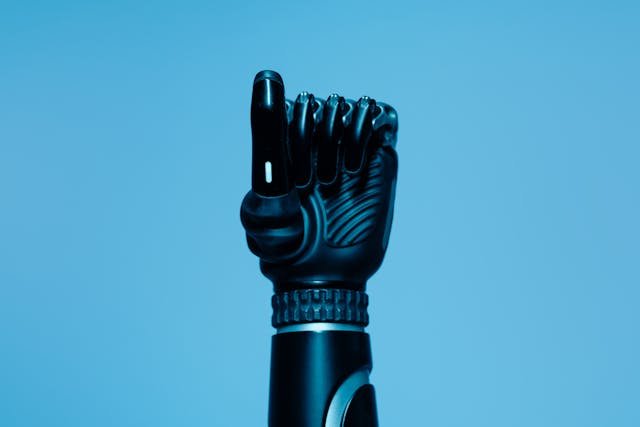
The next decade will see rapid advancements in biodegradable prosthetic technology, making them stronger, more functional, and widely available.
Researchers are working on self-repairing biodegradable materials, which can heal minor cracks and damage on their own, reducing the need for replacements. Scientists are also exploring biodegradable nanocomposites, which combine natural and synthetic materials for greater durability and flexibility.
Another exciting development is biodegradable electronic components, allowing smart prosthetics to have built-in sensors and AI-powered adjustments while maintaining sustainability. This will lead to eco-friendly bionic limbs that offer advanced functionality without harming the environment.
By 2030, biodegradable prosthetic materials will be as strong and durable as traditional materials, ensuring that sustainability does not come at the cost of performance.
7. The Role of Government and Industry in Promoting Biodegradable Prosthetics
For biodegradable prosthetic materials to become widely adopted, government policies and industry support will play a crucial role. As global awareness of sustainability and environmental responsibility increases, policymakers are expected to push for regulations and incentives that encourage eco-friendly prosthetic manufacturing.
Governments in many countries are already investing in green healthcare solutions, providing grants and subsidies for companies developing biodegradable medical devices. Additionally, stricter regulations on plastic waste and non-recyclable medical products may encourage the shift to biodegradable alternatives.
By 2030, the prosthetics industry is expected to be more environmentally conscious, with sustainability-driven innovations becoming the norm rather than the exception. Manufacturers that adopt biodegradable materials early will be at the forefront of this revolutionary shift.
8. Overcoming Challenges in Biodegradable Prosthetic Development
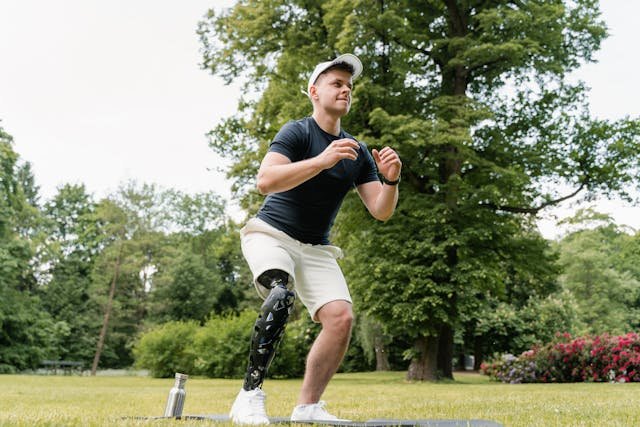
Despite their numerous benefits, biodegradable prosthetic materials still face some challenges before they become mainstream. Researchers and manufacturers are working hard to overcome these obstacles and ensure that eco-friendly prosthetics meet the highest standards of quality and durability.
One key challenge is material strength and longevity. While biodegradable materials are designed to break down over time, prosthetic limbs must be long-lasting and durable. Scientists are addressing this by developing biodegradable composites that provide the necessary strength while still being eco-friendly.
Another challenge is cost-effectiveness. While biodegradable materials have the potential to reduce overall costs, the initial research and development investment is high. However, as more companies and governments support sustainable prosthetic solutions, production costs are expected to decrease significantly by 2030, making biodegradable prosthetics affordable and widely available.
9. The Psychological and Social Impact of Biodegradable Prosthetics
The benefits of biodegradable prosthetics go beyond environmental sustainability—they also have a positive psychological and social impact on users. Knowing that their prosthetic limb is made from sustainable materials can enhance self-esteem and mental well-being, as users feel they are contributing to a healthier planet.
Additionally, biodegradable prosthetics can help reduce stigma in some cultures where traditional prosthetic materials are seen as unnatural or too artificial. The use of organic, plant-based, or biodegradable components makes prosthetic limbs feel more in harmony with nature, encouraging greater social acceptance.
By 2030, biodegradable prosthetics will not only be functional and sustainable but also culturally and psychologically empowering, helping users feel more connected to their prosthetic devices.
10. The Future of Fully Biodegradable Smart Prosthetics
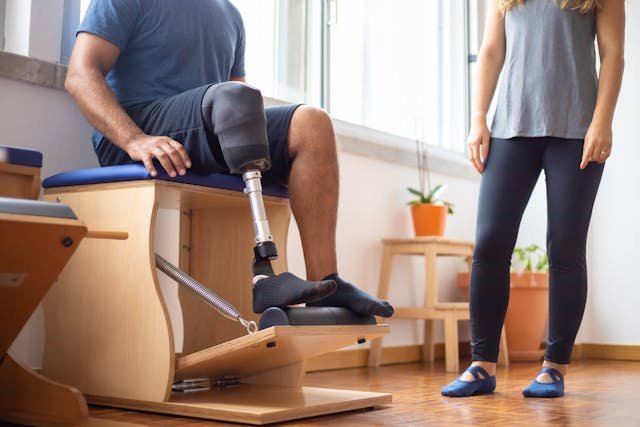
As technology advances, the next step in biodegradable prosthetic innovation will be the development of smart prosthetics that are both high-tech and sustainable.
Future biodegradable prosthetics will include smart sensors, AI-driven movement learning, and cloud connectivity, all while using eco-friendly materials. Researchers are exploring biodegradable circuits and organic electronics, which will allow prosthetic limbs to have embedded intelligence without relying on traditional non-recyclable components.
By 2030, users will have access to fully biodegradable smart prosthetic limbs that offer advanced movement control, real-time adaptability, and sustainability in one package. This will revolutionize both prosthetic technology and environmental responsibility, ensuring that innovation does not come at the cost of the planet.
11. How Biodegradable Prosthetics Can Reduce Medical Waste
The medical industry generates millions of tons of waste every year, and traditional prosthetics contribute to this problem because they are made from non-recyclable plastics, metals, and synthetic materials. Biodegradable prosthetic materials offer a game-changing solution by significantly reducing medical waste and its environmental impact.
When traditional prosthetics are discarded or replaced, they often end up in landfills or incinerators, contributing to pollution and greenhouse gas emissions. In contrast, biodegradable prosthetics are designed to break down naturally after their usable life, leaving behind minimal or no waste.
By 2030, biodegradable prosthetic solutions will help medical institutions, manufacturers, and governments adopt more sustainable waste management policies, reducing the environmental footprint of prosthetic production and disposal.
12. Advancements in Self-Healing Biodegradable Prosthetic Materials
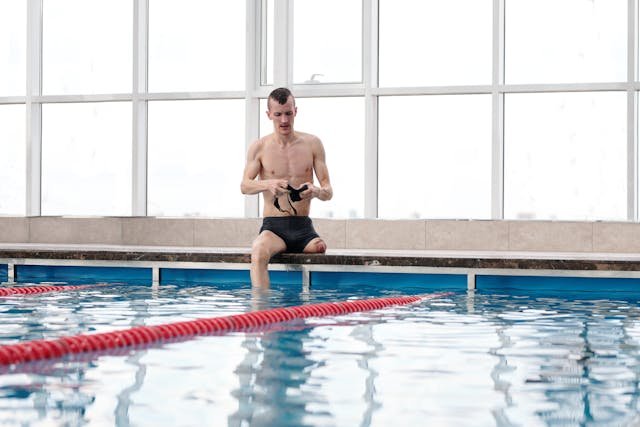
One of the most exciting developments in biodegradable prosthetic technology is self-healing materials. These advanced materials can repair minor damage or wear on their own, extending the life of a prosthetic limb while maintaining its strength and function.
Scientists are developing biodegradable polymers that contain microcapsules filled with healing agents. When a small crack or tear forms, these capsules release the healing agent, allowing the material to repair itself without requiring manual intervention.
By 2030, self-healing biodegradable prosthetics will eliminate the need for frequent repairs and replacements, reducing costs for users while ensuring that prosthetic limbs remain functional for longer periods.
13. The Role of Biodegradable Prosthetics in Disaster Relief and Humanitarian Aid
In disaster-affected areas and war zones, many people lose access to proper medical care and mobility assistance. Biodegradable prosthetic materials can play a crucial role in humanitarian efforts by offering affordable, rapidly producible, and eco-friendly solutions for amputees in crisis situations.
Because biodegradable prosthetics can be 3D-printed using locally sourced materials, they can be manufactured and distributed quickly in emergency relief programs. Unlike traditional prosthetics, which require complex logistics and expensive imports, biodegradable options can be produced on-site, ensuring that people receive mobility support faster and at a lower cost.
By 2030, biodegradable prosthetics will be a key part of global humanitarian aid, helping those affected by natural disasters, conflicts, and economic hardships regain mobility with sustainable solutions.
14. The Intersection of AI and Biodegradable Prosthetics
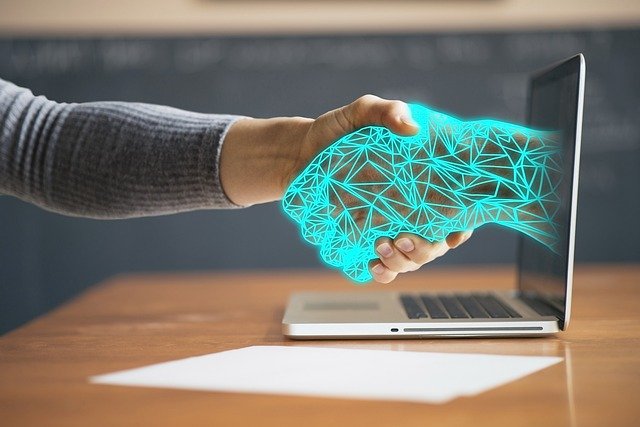
Artificial Intelligence (AI) is transforming prosthetic technology, making artificial limbs more intuitive, responsive, and adaptive. The challenge has been integrating AI with sustainable materials, but researchers are now developing biodegradable electronic components that can power AI-driven prosthetic limbs.
AI-powered biodegradable prosthetics will feature adaptive movement learning, allowing the limb to analyze user behavior, optimize movements, and improve performance over time. These smart limbs will also store data in biodegradable memory chips, eliminating the use of harmful non-recyclable electronic waste.
By 2030, AI and biodegradable materials will combine to create eco-friendly, self-learning prosthetic limbs that offer both advanced functionality and environmental sustainability.
15. Global Policy Changes to Support Biodegradable Prosthetic Technology
As sustainability becomes a global priority, governments and regulatory bodies are expected to introduce new policies that encourage the development and adoption of biodegradable medical devices.
Some countries are already offering tax incentives and funding for research into biodegradable healthcare solutions, ensuring that manufacturers invest in eco-friendly innovation. New regulations may also require prosthetic manufacturers to meet sustainability standards, reducing the production of non-biodegradable waste in the medical field.
By 2030, international organizations and governments will work together to standardize biodegradable prosthetic production, ensuring that sustainable solutions are affordable, accessible, and widely available.
16. The Psychological Benefits of Using Biodegradable Prosthetics
Beyond the physical and environmental benefits, biodegradable prosthetics can also have a profound psychological impact on users. Many individuals feel a deep connection to their prosthetic limbs, and knowing that their device is made from natural, sustainable materials can improve mental and emotional well-being.
Additionally, biodegradable prosthetics reduce the anxiety of long-term environmental damage, allowing users to feel more responsible and connected to nature. The ability to customize prosthetics with natural, organic materials also creates a more personalized and comfortable experience.
By 2030, biodegradable prosthetics will not only enhance mobility and sustainability but also contribute to better mental health and a stronger sense of environmental responsibility among users.
17. The Impact of Biodegradable Prosthetics on Future Generations
The shift toward biodegradable prosthetic materials will have a long-lasting impact on future generations, ensuring that prosthetic technology continues to evolve sustainably.
As children and young adults grow up with eco-friendly prosthetic options, they will be more aware of sustainability issues in healthcare. This knowledge will encourage further research and innovation, leading to even more advanced biodegradable solutions in the future.
By 2030 and beyond, biodegradable prosthetic technology will become a symbol of progress, showing that healthcare and environmental sustainability can go hand in hand.
Final Thoughts: A Sustainable Future for Prosthetics
Biodegradable prosthetic materials are paving the way for a more sustainable, eco-friendly future in healthcare. With innovations in biodegradable polymers, 3D printing, and natural fiber composites, prosthetics are becoming more accessible, affordable, and environmentally responsible.
At Robobionics, we are committed to integrating sustainable materials into our prosthetic designs, ensuring that users receive high-quality, biodegradable solutions that promote both mobility and environmental responsibility.
If you’re looking for next-generation, sustainable prosthetic solutions, book a free demo with Robobionics today and take the first step toward a greener, more innovative future!



